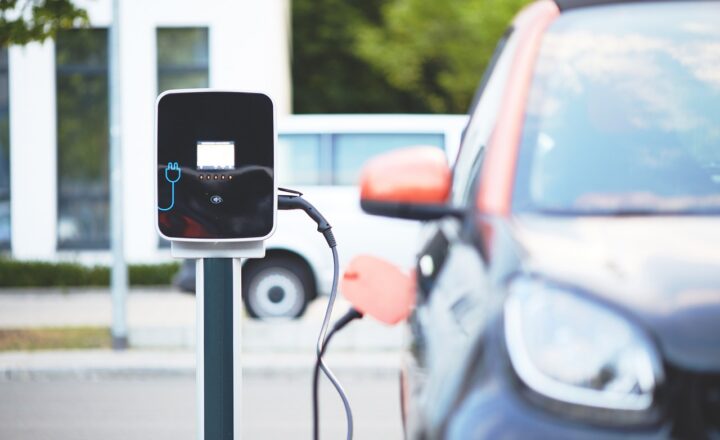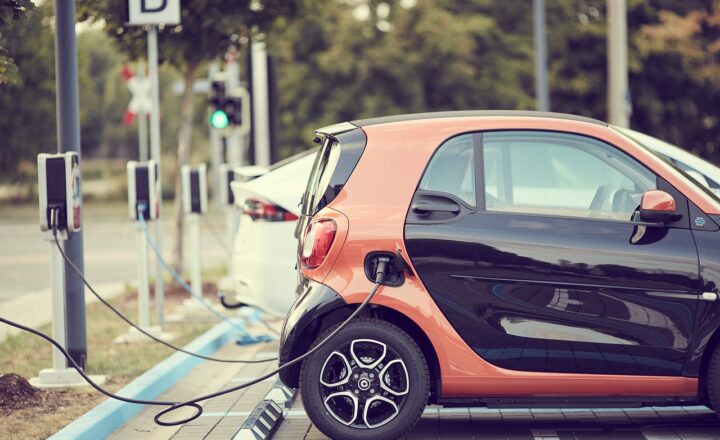From Horsepower to Kilowatts: How Electric Cars Are Reshaping Our Roads
November 14, 2024

Electric cars are no longer just a fleeting trend; they represent a paradigm shift in how we think about transportation and energy consumption. Over the past decade, advancements in technology and growing environmental concerns have spurred the rise of electric vehicles (EVs), which are now a significant player in the automotive industry. In this comprehensive article, we delve into how electric cars are reshaping our roads and our societies, from their ecological impact to technological advancements and the transition from horsepower to kilowatts.
1. The Rise of Electric Vehicles
The transition to electric vehicles encapsulates a story of innovation, market adaptation, and consumer awareness. According to the International Energy Agency (IEA), global sales of electric cars reached over 3 million units in 2020 alone, reflecting a 40% increase from the previous year. With more manufacturers pumping funds into EV development than ever, the automotive landscape is transforming rapidly.
Environmental Drivers
As climate change becomes increasingly impossible to ignore, the environmental implications of transportation are prompting meaningful changes. Electric cars produce zero tailpipe emissions, significantly reducing greenhouse gases compared to conventional gasoline-powered vehicles. This swift transition aligns with global ambitions to slow climate change and commit to a cleaner, sustainable future.
Research indicates that EVs can effectively reduce urban air pollution, leading to better public health outcomes. Moreover, advancements in battery recycling and sustainable mining practices make the entire electric vehicle lifecycle more environmentally friendly than traditional automobiles.
2. Technological Advancements: The Shift in Power
Transitioning from horsepower to kilowatts involves understanding the technology behind electric vehicles. Electric motors deliver instant torque, making acceleration responsive and smoother than internal combustion engines. This isn’t just a fun fact for car enthusiasts; it fundamentally alters the perception of performance.
Batteries: The Heart of Electric Cars
At the core of every electric vehicle lies its battery. The advancements in lithium-ion battery technology have paved the way for longer ranges and faster charging times. Today, many electric cars can achieve ranges exceeding 300 miles on a single charge, comparable to traditional gas vehicles. Factors contributing to this evolution include:
- Improved Energy Density: Manufacturers are developing batteries with a higher energy density, allowing for more power without increasing weight.
- Faster Charging Technology: High-speed DC chargers can power an EV battery to 80% in as little as 30 minutes, drastically reducing downtime for drivers.
- Cost Reductions: As battery production scales up, prices have decreased by over 80% in the last decade, making EVs more affordable for consumers.
With ongoing research, including solid-state batteries, the future looks bright for electric vehicle technology.
3. The Economic Impact of Electric Cars
Electric vehicles are not just reshaping our roads; they are also impacting economies on various levels. The shift also affects job markets, energy consumption, and government policies.
Job Creation and Economic Growth
The rapid growth of the EV market has created new job opportunities in manufacturing, software development, battery recycling, and infrastructure development. Several governments are also investing in training programs to equip the workforce with the skills needed for this burgeoning industry.
Infrastructure Development
To support the growing number of electric vehicles, significant investments in charging infrastructure are underway. Companies and municipalities are collaborating to build expansive networks of chargers that make EV ownership practical and appealing.
This infrastructure rollout is not only a boon for electric car owners; it also promotes job growth in construction and technology sectors, proving that the transition to electric transportation can stimulate economic activity.
4. Shifting Consumer Perceptions
As electric vehicles become more mainstream, consumer perceptions are changing. Increasing awareness of environmental issues and the long-term cost benefits of EV ownership are motivating more individuals to consider making the switch.
Lower Operating Costs
Electric vehicles tend to have lower operating costs than their gasoline counterparts. With fewer moving parts, maintenance requirements decrease substantially. Additionally, many regions incentivize EV ownership through tax rebates, grants, and lower electricity rates for charging. Over time, the total cost of ownership can be significantly lower.
5. Overcoming Challenges: Range and Charging Anxiety
Despite the positive shifts toward electric vehicles, challenges remain. Range anxiety—the fear that a vehicle will run out of charge before reaching its destination—persists among potential EV owners. However, manufacturers and governments are addressing these concerns through innovative solutions:
- Expanding Charging Networks: Investment in public charging stations to ensure drivers have access to convenient and reliable charging options.
- Battery Technology Improvements: As discussed, advancements in battery tech are continuously improving range and efficiency.
- Incentives and Awareness Campaigns: Governments and organizations are promoting EV education to reassure consumers about the viability of electric cars.
These initiatives are critical for fostering a smooth transition to electric vehicles for the masses.
6. The Future of Electric Cars: A Sustainable Vision
As we drive further into the future, we can expect electric cars to dominate the automotive industry. Major manufacturers have pledged significant investments in EV technology, with some committing to exclusively produce electric vehicles in the coming decades. The interconnectedness of technology, sustainability, and innovation will shape how we approach transportation.
In conclusion, the rise of electric cars marks a transformational shift in how we perceive mobility and our relationship with the environment. From reducing carbon footprints to cutting operating expenses, electric vehicles are not merely a trend—they are our new reality. As technology progresses and infrastructure expands, embracing this shift will lead to more sustainable and efficient transportation systems, reshaping our roads for generations to come.
Conclusion: Embracing the Electric Revolution
The transition from horsepower to kilowatts in automotive engineering symbolizes a larger shift toward sustainability and innovation. As electric vehicles take center stage, it is crucial for consumers, manufacturers, and governments to collaborate in driving this change forward. Together, we can turn the challenges of today into the triumphs of tomorrow, ensuring a cleaner, safer, and more efficient world for everyone.





